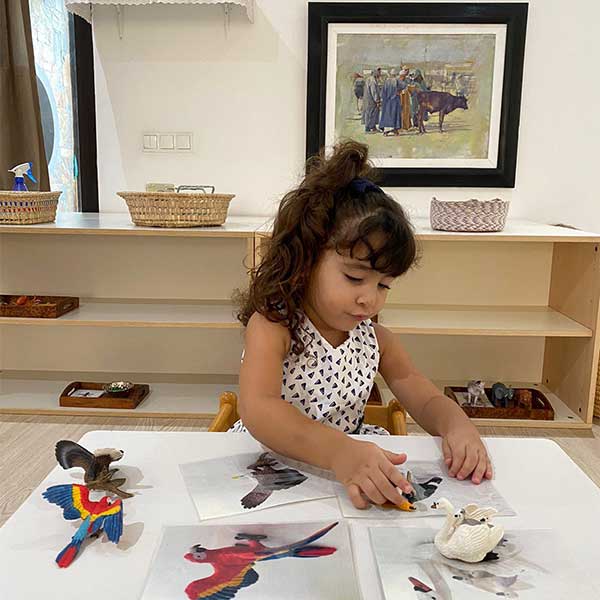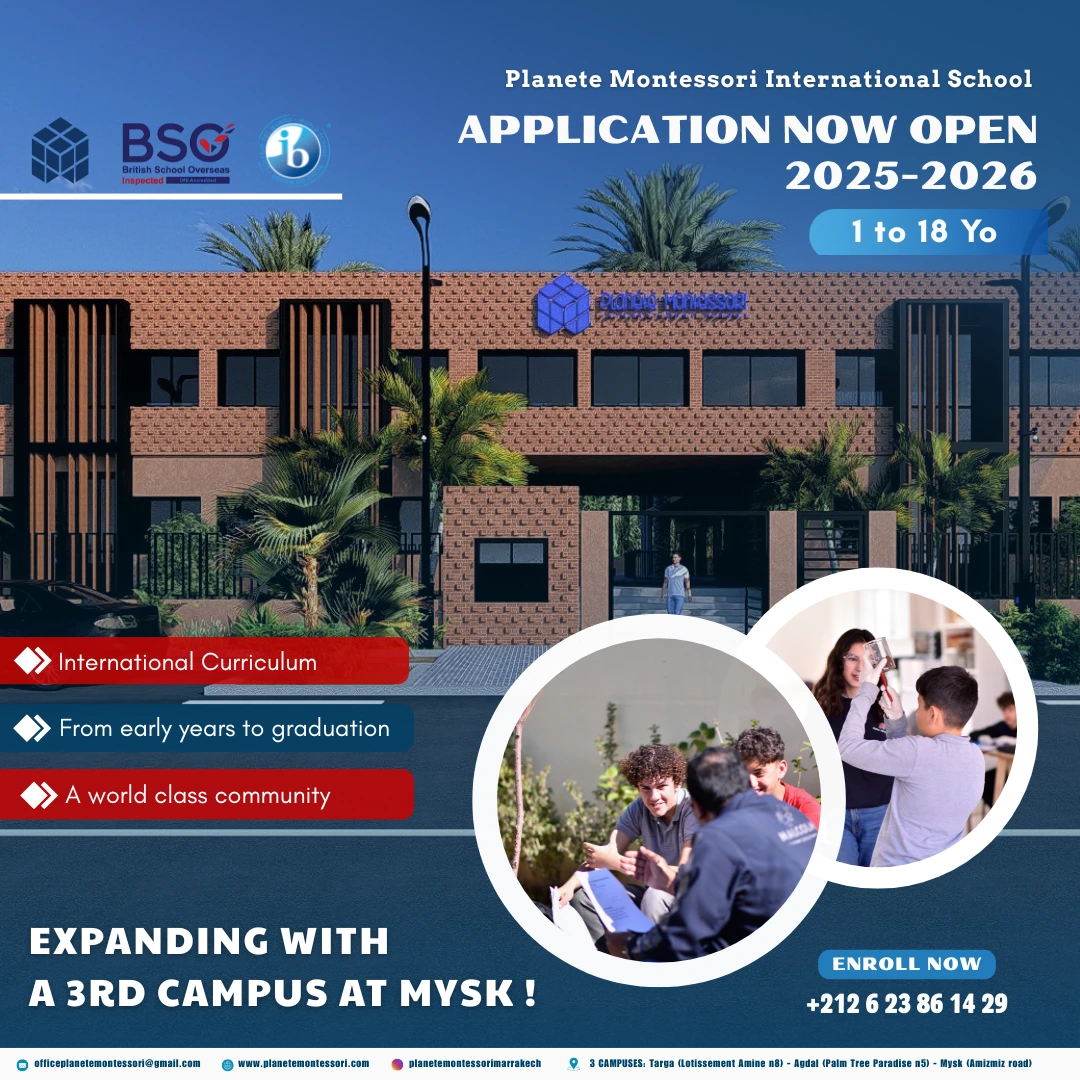Montessori toddler community cycle (1 to 3 years old)
During the first three years of a child’s life, his brain triples in size.
These three years have a significant impact on his future life. This is why the environment must be rich in experience, caring and respectful of the child. In our toddler’s community, the adult is available for the child and listens to his needs. A relationship of trust is created to allow the child to develop his confidence and self esteem.
This period, where the most significant changes in his physical and mental growth are observed, is very important for the development of his personality and individuality: “Help me be myself.

Starting at 2 years old, the child experiences “an explosion of language”. The Montessori environment offers a wide range of language opportunities for the children to explore. Each activity is a sensory experience that leads the child to observe and then to name. Any action taken is described and leads to a conversation. The children of Montessori Toddler Community evolve in a fully trilingual environment: each adult is the referent of a language (English – French – Arabic). At this age, children are like “sponges”, they can learn three languages effortlessly; hence the importance of multilingualism. The different language activities are given in a concrete way, through songs, games, reading, description of objects and positive exchanges.
Children like to explore their surroundings, which is why the environment is carefully prepared to allow the children to explore and make decisions freely. It is important not to hinder their impulses and to offer them the possibility of developing their research, thanks to the manipulation of the material (the hand is the tool of the brain).
The Montessori Prepared Environment gives the child the security he needs. It is an orderly, structured environment conducive to the development of the child’s internal order (structure of ideas, development of a logical-mathematical and self-disciplined mind).
The child enjoys some level of freedom in the environment, while being taught to respect the class rules and limits. Through the various activities offered, the child develops his love for work, which leads him to acquire longer phases of concentration.
The child is encouraged to work with materials that have been previously presented to him by the Guide (the teacher).
Within the environment, the teaching material is adapted to the strength and size of the child. It is then easy for him to handle and transport it. It is colorful, aesthetic and made to stimulate it.
At this age, motor skills are not fully acquired, the child needs to carry and move around in order to work on his gross motor skills. A multitude of equipment is available to him, allowing him to work on fine motor skills. The space is open and allows free movement, fostering the spirit of research and discovery.
The child needs to touch objects to develop. When he sets in motion, he knows in advance what he wants to do, and what he can do. He has already seen it done by adults, and in particular in the activities of daily tasks.
Examples: washing and wiping dishes, washing clothes, sweeping, using the mop, peeling, cutting, pressing, pounding, washing hands, dressing, blowing one’s nose, combing, screwing, unscrewing, waxing, open and close different bottles, ..
The Montessori environment offers a space that promotes independence, the child develops himself thanks to activities of practical life helping him to take care of himself and of his environment. He thus develops his independent spirit thanks to free choice and to autonomous and uninterrupted work.
As soon as they enter class, children learn basic skills with which to take care of themselves.
Children are very drawn to carefully prepared material. Their active participation in practical activities allows harmony of body and mind.
Their development and independence as individuals depend on participation in these activities. This is how the child learns to develop positive values such as confidence, self-esteem and the desire to learn.







